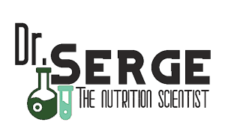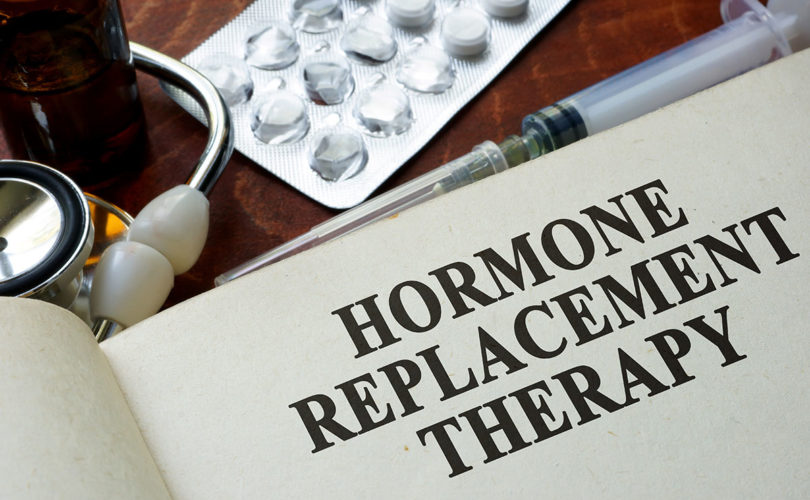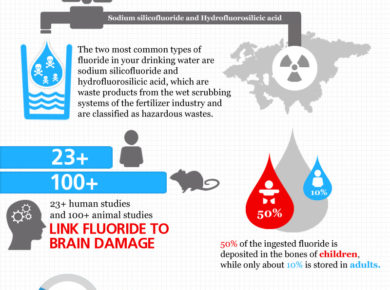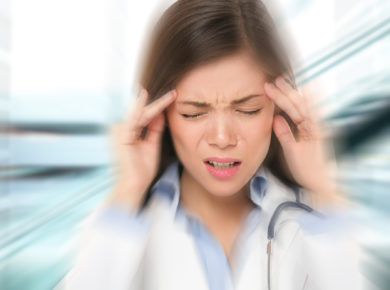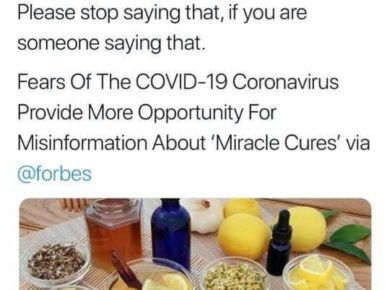I got a lot of questions on my post on bio-identical hormones and the risks of using them.
This is a topic that is very confusing and every doctor I talked to seems to have their own opinion on this topic.
But let’s look at the science of what we know about those “bio-identical” hormones.
Bioidentical hormones are NOT found in nature. In fact, there is not one single plant that contains human hormones. Not one. Some of them, however, do contain certain phytochemicals that when we ingest the plant, can provide the building blocks for your own body to make the hormones it needs. But the plants themselves do not contain hormones.
In order for chemists to create a bioidentical hormone, they extract these phytochemicals from the plants and chemically manipulate them through a multi-step process in order to produce a “bioidentical” hormone. But is it really bioidentical?
Are they exactly the same as the hormone that your body produces?
Not one bit.
The only thing that is natural is to drink the horse urine or eat the soy plant (both are used in the manufacturing of hormones). All plant-derived hormone preparations, whether they come from a compounding pharmacy or a large commercial pharmacy, require a chemical process to synthesize the final product, which can then be put into a cream, a spray, a patch or a pill.
Premarin® could be considered “natural” because it comes from a pregnant horse’s urine but its structure is different from our human hormones.
Promoters of compounded plant-derived hormones use the terms “natural” and “bioidentical” because it is appealing to consumers and implies that it is not synthetic.
Furthermore, what you get from the compounding pharmacy (where a compounding pharmacist custom mixes drugs to fit the unique needs of a patient) is not “more human-like” than what you get in an FDA-approved product.
In fact, you are actually getting the IDENTICAL hormone molecule whether you get your hormones from a compounding pharmacy or your mega-pharmacy.
How can that be? This is the interesting part. Compounding pharmacies don’t manufacture hormones, they just mix them.
Manufacturing factories are the ones that extract estrogen and progesterone from plants, synthesize it to a useable form, and then sell the same active ingredients to both commercial pharmaceutical companies and compounding pharmacies. It is then that the active ingredient is used to make lotions, pills, sprays or patches.
It’s basically all the same stuff. In fact, many compounding pharmacies mass produce hormone preparations that are copies of those produced commercially.
“Natural” means the hormones in the product come from plant or animal sources; they’re not synthesized in a lab. However, many of these products still need to be commercially processed to become bioidentical.
“Natural” does not equal “safer.”
I have seen those too many times. It is very unfortunate.
I have seen women developing Cushing syndrome (abnormally high levels of the hormone cortisol) or adrenal fatigue because they have been on natural progesterone for years!
Or women gaining weight because of it!
Customized bioidentical hormones are often advertised as being a safer, more effective, natural, and an individualized alternative to conventional hormone therapy. However, these claims remain unsupported by any large-scale, well-designed studies.
The FDA states that it’s “concerned that BHRT (bio-identical hormone therapy) claims mislead women and health care professionals, giving them a false sense of assurance about using potentially dangerous hormone products … ‘BHRT’ is a marketing term not recognized by the FDA, and the FDA is taking action against pharmacies that make false and misleading claims about BHRT drugs.”
Some research also shows that hormones that are marked as bioidentical might not be much different at all from those in traditional hormone replacement therapy and might even be riskier in some cases.
According to the American College of Obstetricians and Gynecologists, there are also issues surrounding the accuracy of testing when it comes to measuring patients’ hormone levels with saliva or blood tests.
There is not strong scientific evidence that these tests are accurate given the fact that a woman’s hormones can vary throughout the day or vary substantially throughout a given month depending on things like her stress, sleep, activity, diet, etc.
This makes it difficult to prescribe and prepare a custom-mixed BHRT solution that will work effectively.
Doctors prescribing those hormones know about it. When you start messing around with your hormones, it is very hard to normalize them. And it can lead to serious consequences.
That is why I do not use hormones on my patients!
Since the FDA does not regulate compounding pharmacies, they can make whatever claims they want. So, they tell women what they want to hear, namely that compounded bioidentical hormones have fewer risks, fewer side effects, and are more effective than standard hormones even though there is no scientific evidence to prove that claim.
While women generally distrust the pharmaceutical industry, which is legally obligated to back up their claims, does testing, and reports all safety risks and negative findings, the general population seems to have little problem placing their trust in companies that have no such efficacy or safety standards.
This combined with aggressive advertising and marketing has resulted in women believing that compounded products are safer than standard products.
But according to the American Congress of Obstetricians and Gynecologists (ACOG), there have been no large long-term clinical trials that have studied their safety and effectiveness. ACOG believes that compounded bio-identical hormones should be considered to carry the same risks as FDA-approved drugs, such as those uncovered in the WHI study, and possibly even more.
Robert S. Wool, MD, an ob-gyn at Noble Hospital, Mercy Medical Center, and Baystate Medical Center and in private practice in Westfield and Springfield, Mass., has concerns as well.
“In my honest opinion, I believe bio-identical hormones (filled at a compounding pharmacy) are a marketing ploy,” he says. “They are the same hormones, estrogen, and progesterone, but are ‘custom made’ for each patient that requests them.”
Each bioidentical hormone has its own side effects.
Estrogen is associated with increased risk of heart attack, stroke, dementia, gallbladder problems, hypertension, liver impairment, high blood sugar and breast, ovarian and uterine cancers. Estradiol, a type of estrogen can affect breasts, skin, cardiovascular, gastrointestinal, and central nervous systems. Due to this, estradiol is given only for short-term.
Progesterone adverse effects include: constipation, yeast infection, acne, breast cancer, conjunctivitis, heart attack, stroke, migraine, asthma, depression, , acne, increase in weight, cramps, spotting, blurred vision, increase In The Growth Of Facial Hair In Women, bloating, mood swings, breast tenderness, digestion issues, headaches, and tiredness.
The FDA has reported that, according to clinical studies, hormones that are marketed as bioidentical or natural don’t appear to be any more effective or safe compared to hormones used in traditional hormone therapy products.
This article goes over the latest research on this topic:
“Compounded Bioidentical Hormones in Endocrinology Practice: An Endocrine Society Scientific Statement”
“The Endocrine Society, the American College of Obstetricians and Gynecologists, the American Society for Reproductive Medicine, and the North American Menopause Society have all concluded that there is no scientific evidence to support claims of increased efficacy or safety for custom-compounded bioidentical estrogen or progesterone regimens over FDA-approved HTs”.
In other words, those “bio-identical” hormones carry the same risks as traditional hormonal therapy.
It’s pretty scary to think that millions of women are using prescription drugs that have never gone through a new drug approval process to substantiate safety, prove efficacy, and ensure quality.
Here’s my opinion:
While hormone therapy might be better than some other standard medical options, bioidentical hormone replacement therapy is not the ideal treatment approach either.
As we just saw, it has its own risks!
It can have some benefits for a short period of time, but that is the best option for the long term.
The key to hormone health is to support your adrenals.
I love using Adrenal Tonic from MediHerb. It is a great blend of herbs that nicely supports the adrenals.
Holy basil, lavender, fish oil, licorice, magnesium, vitamin D, vitamin C, Rhodiola, selenium, full-spectrum, food-based B vitamins, and Schisandra and key nutrients that can be used to help the adrenals.
Of course, avoids sugars, limiting carbs, trans fats, processed foods, caffeine can help as well.
And of the major aspect of adrenal health is to handle our stress. Some people run, some meditate, pray, whatever gives you peace.
John 14:27
Peace I leave with you; my peace I give you. I do not give to you as the world gives. Do not let your hearts be troubled and do not be afraid.
Dr. Serge
#thenutritionscientist
